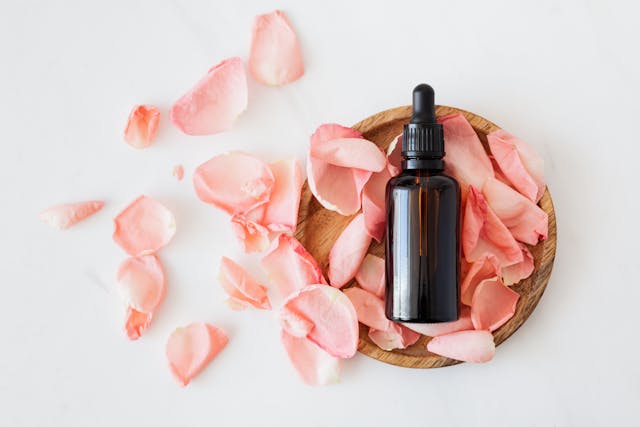Photo from Pexels
Aromatherapy, a holistic therapeutic approach based on natural plant extracts, has been adopted by various civilizations throughout the world for millennia. Essential oils extracted from flowers, herbs, and trees provide aromatherapy with a sensory experience that supports general health, emotional balance, and relaxation. Examining the fundamental yet important benefits of aromatherapy helps one to realize how it can enhance daily life.
1. Promotes Relaxation and Reduces Stress
Aromatherapy is widely renowned for its ability to induce relaxation and alleviate tension. Many times, utilized for their relaxing effects are essential oils, including lavender, chamomile, and bergamot. These oils interact with the limbic system of the brain, which is vital in the control of emotions when breathed. This relationship can cause lower cortisol levels, the hormone mostly connected with stress. Lavender's calming scent has been proven to help people relax after a demanding day, which is why it's a common option for nighttime rituals. Many people include aromatherapy in their daily self-care routines by diffusing essential oils in their homes, therefore fostering peaceful surroundings that promote relaxation. Apart from helping to reduce stress, this peaceful environment enhances the quality of sleep, therefore enabling people to wake up feeling revived and refreshed.
2. Enhances Mood and Emotional Balance
Aromatherapy, in addition to aiding relaxation, has important consequences for mood and emotional equilibrium. Some of the most well-known uplifting essential oils are citrus ones like lemon and orange. A useful tool in mental health assistance, inhaling these smells can help fight anxiety and despair. Studies have shown that aromatherapy can boost the synthesis of serotonin and dopamine, two neurotransmitters that are essential for preserving emotional balance. Including mood-boosting essential oils into daily living helps people create an environment that supports resilience and optimism. Many aromatherapy practitioners create individualized experiences that fit their mental health objectives by using combinations that meet their emotional demands. This customized strategy improves emotional well-being and helps people to take control of their mental health by means of the smells they surround themselves with.
3. Alleviates Physical Discomfort and Supports Health
Eliminating physical discomfort and promoting general health are two more strong advantages of aromatherapy. Many of the basic oils include anti-inflammatory, analgesic, or antispasmodic qualities that could help control discomfort and pain. For example, eucalyptus oil is frequently used to treat respiratory problems; peppermint oil is well known for its ability to relax muscles and headaches. These oils can improve the relaxing qualities when combined with massage or bath treatments, therefore offering a natural substitute for over-the-counter painkillers. Furthermore, several important oils help to strengthen the immune system and enhance respiratory capacity. Regular usage of oils like tea tree and eucalyptus can help avoid infections and promote improved general health. People looking for complete health solutions sometimes find aromatherapy to be a good addition to traditional therapies as it provides a mild yet potent way to control different diseases. With choices ranging from topical treatments to diffusing essential oils in living areas, aromatherapy's adaptability makes it available to people wishing to organically enhance their physical condition.
4. Encourages Creativity and Self-Expression
Aromatherapy also helps people to be creative and express themselves. Scent engagement can be a very personal and fulfilling experience, allowing people to connect with their preferences and feelings. For individuals who want to make their own blends, producing unique mixtures of essential oils can be both rewarding and soothing. Obtaining training from a trustworthy source that lets you craft your own incense by combining oils that connect with personal experiences or desired emotional states. This creative process not only develops awareness but also instills a sense of control over one's own well-being. Individuals can find what works best for them by experimenting with various fragrances and combinations, transforming aromatherapy into a personal voyage of self-discovery. This creative approach to wellness encourages people to take an active part in their health, turning aromatherapy into a form of self-care that values uniqueness and creativity.
Conclusion
The basic yet effective advantages of aromatherapy appeal to people looking for natural means to improve their quality of life. From fostering emotional balance and relaxation to relieving physical pain and supporting creative expression, aromatherapy provides a whole approach to well-being. Using the therapeutic qualities of essential oils, people can develop a better, more balanced way of life fit for their tastes and requirements. The age-old technique of aromatherapy is still a great tool for anybody trying to enhance their everyday experience and develop a closer relationship with their surroundings as the demand for holistic health keeps rising.





Comments